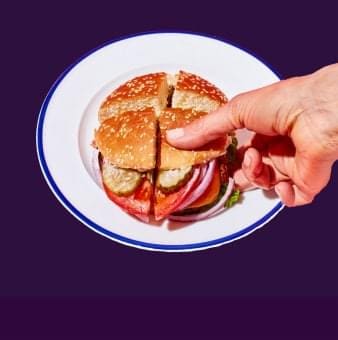Do your choices reflect your values? Mindfulness can help

Mental health Wellbeing
Without getting too technical, values can be defined as basic fundamental beliefs that guide and motivate us.
Leading a “values-based” life was something I’d heard of but never fully understood. I’m a generally happy person and most days I feel satisfied with how my life is going, so I must be living a life based on values, right?
It wasn’t until I took the “Skills to Thrive in Anxious Times” program that it all started making sense. I was generally happy, yes, but still living a life based on goals—what work tasks am I going to set for myself today? Whose turn is it to plan dinner? What’s my progress on exercising four times this week?
Those are all relevant questions, but I wasn’t bringing any awareness to the things that are truly important to me.
What are values and why are they important?
Without getting too technical, values can be defined as basic fundamental beliefs that guide and motivate us. Values are important to the way we live and work, but the “hustle and grind” mentality of the American workforce can make it easy to forget our values and how we can make our everyday more meaningful by applying them to our lives.
During the program sessions, we each identified five values that resonated most with us. For me, it’s Connecting, doing Meaningful work, Openness, Kindness, and Compassion. We then thought of actionable ways we could incorporate all five values into our lives, and I realized that I was prioritizing my ever-present to-do list over everything else. I’ve always known what’s important to me, but I wasn’t living it.
Suddenly, the “values-based” life idea started to make sense.
How mindfulness can bring more awareness to your values
My daily mindfulness practice helps me focus my awareness on the present moment, and that time that I take for myself—whether it’s a multi-session program like Skills to Thrive in Anxious Times or a 14-minute Mindful Daily—it’s the perfect opportunity to reassess whether I’m living each day based on values or if I’m just crossing things off my to-do list.
Another mindfulness practice that I like to incorporate into my day is the STOP practice:
- Stop what I’m doing
- Take a few deep breaths, saying “in” and “out” with each inhalation and exhalation to help anchor my attention to the present moment.
- Observe what I’m experiencing—am I carrying physical tension or emotional tiredness? What do I need? This stage of the practice is a good opportunity to reflect on my values—do I need to connect with someone today or take meaningful action to help others?
- Proceed with what will support me at that moment.
Mindfulness is called a “practice” for a reason—the goal-based structure of my day sometimes gets in the way of taking time for myself. But STOP is something I can quickly do to check in with myself and see how I’m living my values.
How are YOU living?
About eMindful
eMindful provides evidence-based mindfulness programs for everyday life and chronic conditions. It delivers measurable results by helping individuals make every moment matter, with greater focus, creativity, and purposeful decisions. Learn more about Wondr Health + eMindful here.





